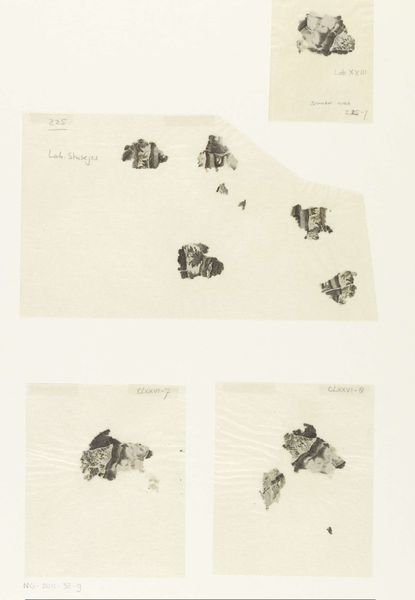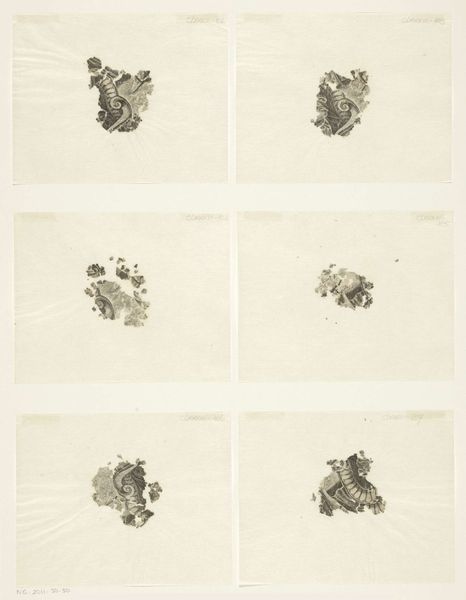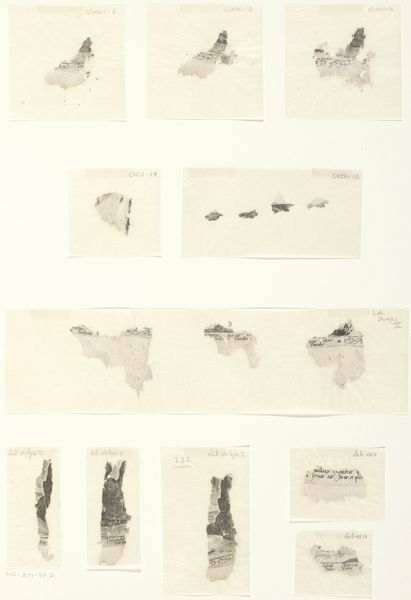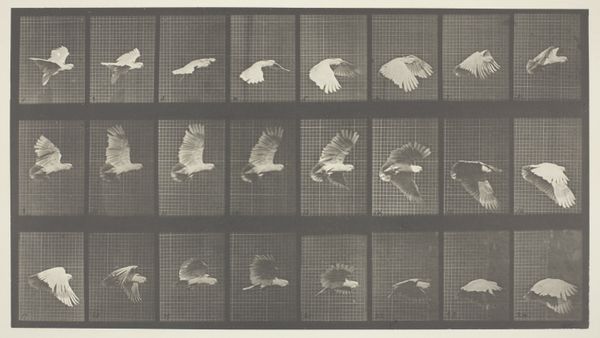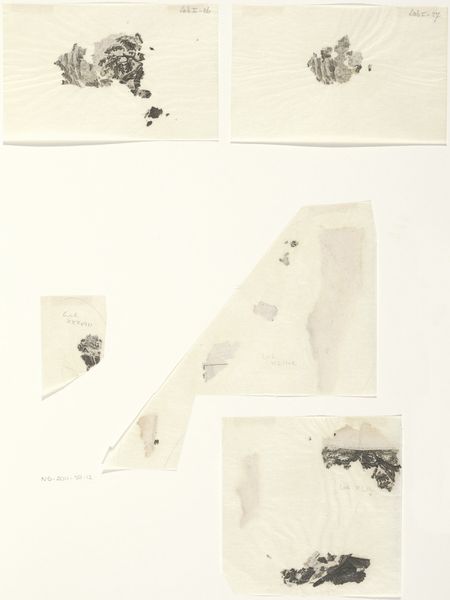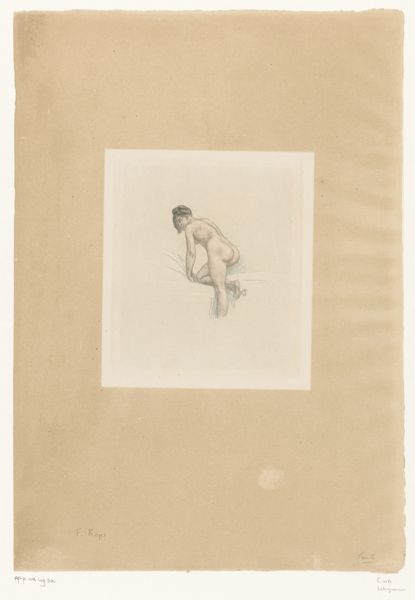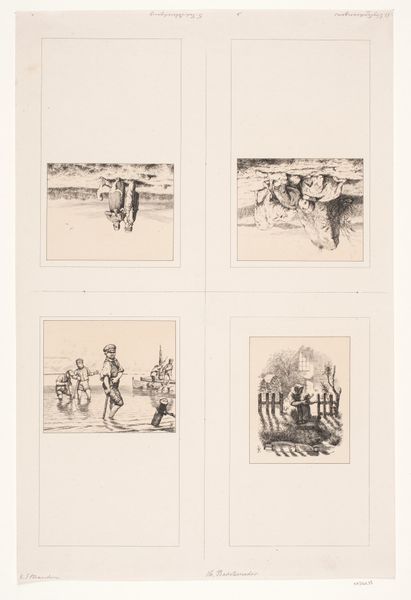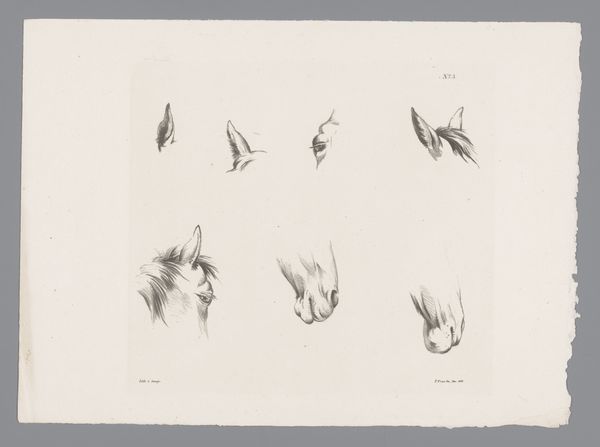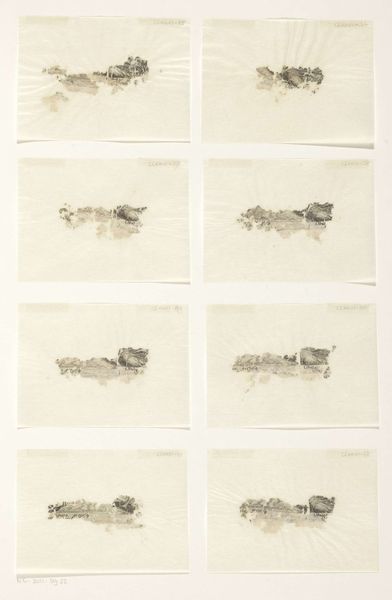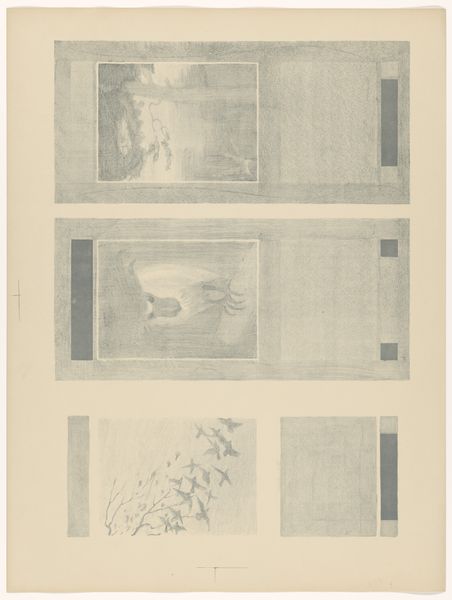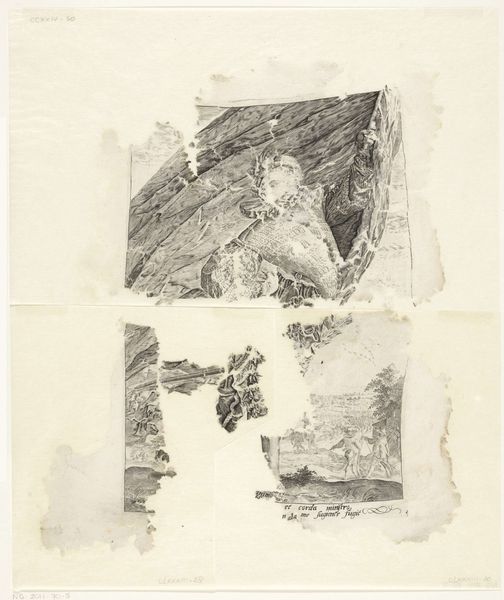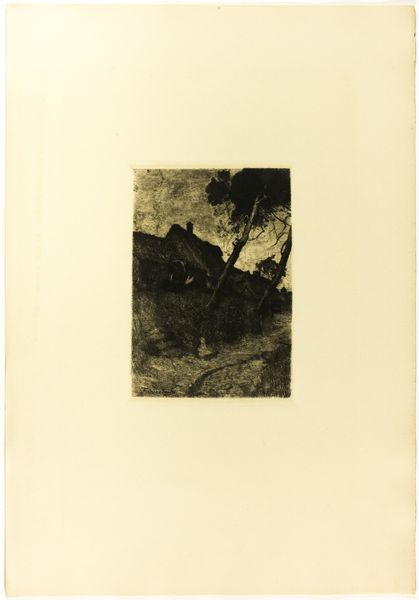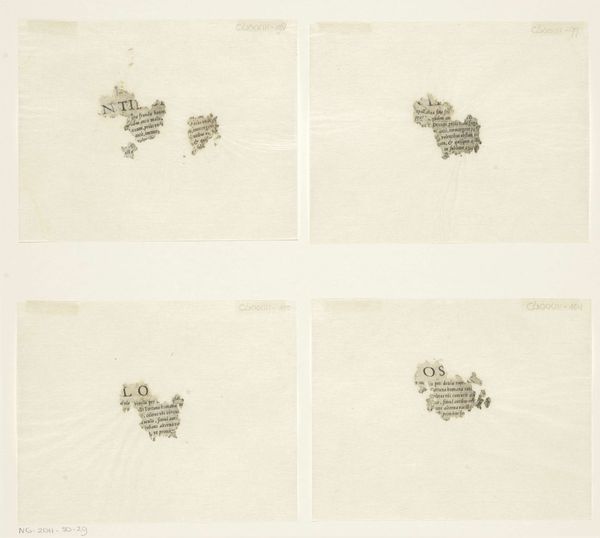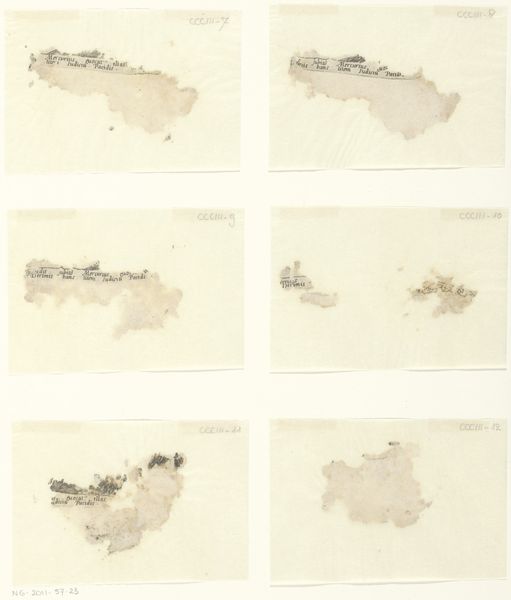
Losse fragmenten van een prent van de verzoening van Jakob en Esau 1580 - 1596
0:00
0:00
zachariasdolendo
Rijksmuseum
drawing, print, paper, pencil, engraving
#
pencil drawn
#
drawing
#
narrative-art
# print
#
pencil sketch
#
charcoal drawing
#
figuration
#
paper
#
pencil drawing
#
pencil
#
northern-renaissance
#
engraving
Dimensions: height 110 mm, width 132 mm
Copyright: Rijks Museum: Open Domain
Curator: What a fascinating layout. At first glance, it feels like an archaeological dig site on paper. Editor: Indeed! We are viewing "Loose Fragments from a Print of the Reconciliation of Jacob and Esau" by Zacharias Dolendo, created sometime between 1580 and 1596. Currently, it resides here at the Rijksmuseum. What strikes me is how these fractured scenes are presented – almost like remnants or discarded studies. Curator: Precisely. And that presentation highlights the material process of printmaking. These aren't just images; they are investigations in engraving technique. The paper, the pencil, the very act of fragmenting the initial design. Dolendo is dissecting his means of production before our eyes, showing his process through these individual studies. How do you interpret this fragmentation in a historical context? Editor: In the context of the Northern Renaissance, there’s a significant humanist element here. Consider how artists increasingly engaged with classical stories. But instead of a singular grand narrative, we are given glimpses, offering the viewer a more active role in piecing the story together. It echoes the Reformation's emphasis on individual interpretation of scripture, a definite sign of the times influencing artistic representation. The individual fragments reflect a wider fragmentation of authority. Curator: I like that reading a lot! I see these divisions as potentially linked to the commodification of art itself. Prints were often collaborative and reproductive ventures. Are we seeing, in this fragmentation, the segmentation of labor within a workshop? Is this Dolendo teasing the social relations of artistic production itself? Editor: An intriguing thought! The loose pieces can surely point towards different skilled artisans contributing to a larger piece in a print shop. Perhaps we’re looking at the prototype phase, a kind of mood board of printmaking. Curator: These glimpses, they pull back the curtain, unveiling the workshop's messy reality behind a finished, flawless-seeming artwork. These prints are not static, self-contained images. Editor: So instead of a singular masterpiece of a resolution, the fragments are more a comment on its societal relevance and manufacturing. A smart visual and meta-commentary. Curator: I concur, a visual paradox in print. Editor: Thank you for highlighting the significance behind this art process, it has helped illuminate more than the pencil on paper.
Comments
No comments
Be the first to comment and join the conversation on the ultimate creative platform.
